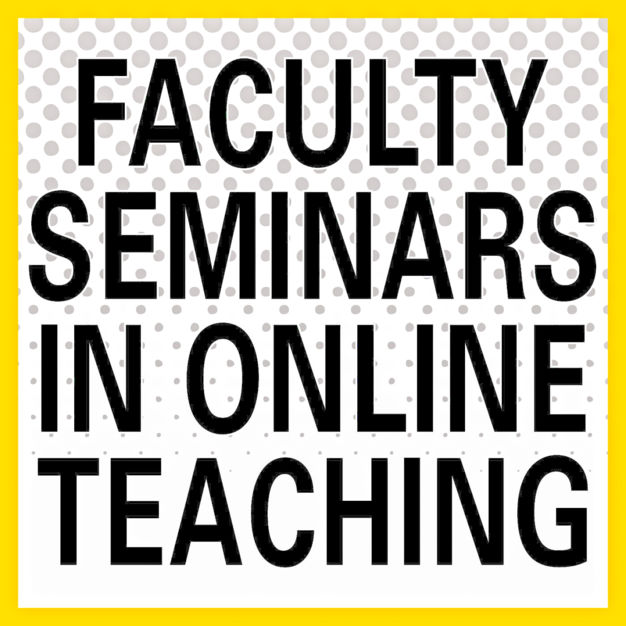
Faculty Seminars in Online Teaching
The Center for Distributed Learning at UCF
These stand-alone seminars are offered periodically for collegial dialogue around best practices in online teaching. They are co-presented by the Center for Distributed Learning and members of the UCF teaching faculty.
- 32 minutes 43 secondsLeveraging OER: Creating an Affordable and Customized Student Learning Experience
Abstract
Whether you are looking to save your students money on high-priced course materials or leverage learning content that offers you the freedom to customize the learning experience for your highly-diverse student demographic, open educational resources (OER) can help you to achieve your goals. In this session, participants will learn about the richness of openly-licensed educational materials, where to find them, and potential use cases for implementation in their courses. Additionally, a UCF professor will share his story about his journey to OER and how his idea began a chain of events that turned his static text to life for his students.
Presenters
Bruce Wilson, Ph.D.
 Professor
Professor
Department of Political Science
College of Sciences
University of Central FloridaBruce Wilson is a professor in the Department of Political Science at UCF. His current research interests include the politics of Central America, the Caribbean, and Latin American countries, comparative judicial reform, political economy, and political parties and interest groups. His research on Latin American politics has appeared in numerous peer-reviewed journals including Comparative Political Studies, the Journal of Latin American Studies, Comparative Politics, Electoral Studies, and the International Journal of Constitutional Law. Bruce has been using open educational resources (OER) extensively in his POS2041: American National Government course, where he completely replaced his previous textbook.
Jim Paradiso, M.Ed.
 Instructional Designer
Instructional Designer
Center for Distributed Learning
Division of Digital Learning
University of Central FloridaJim Paradiso is an instructional designer on the personalized adaptive learning (PAL) team at the Center for Distributed Learning (CDL). He is experienced with leveraging open educational resources (OER) to both enhance the student learning experience and reduce the cost of course materials for students. In addition to his deep, genuine desire to make education more affordable, Jim is often further exploring the world of adaptive learning, working arduously to create pedagogical solutions that challenge extant educational frameworks, as he searches to unlock the mysteries of student motivation and achievement.
Session Recording
Streamed Podcast Session
Presentation Materials
- Presentation [Download PDF; 4.4MB][Download PPTX; 8.9MB]
OER Repositories & Textbooks
- BCcampus: OpenEd – Search a collection of open textbooks for a peer-reviewed book in your discipline. Take advantage of the open textbook Creative Commons license and customize an open textbook to fit your specific needs.
- GMU: Mason OER Metafinder – The Mason OER Metafinder searches seventeen targets in real-time, instantly returning the top several hundred or so relevant hits from each site.
- Lumen: Course Catalog – Discover recommended OER courses that improve learning, covering 50+ high-enrollment college subjects. Can’t find what you’re looking for? Explore their Community OER Course Directory for other OER catalogs and courses.
- MERLOT – MERLOT is a collection of peer-reviewed OER designed primarily for faculty and students of higher education. The collection contains over 40,000 resources that are organized into 19 different material type categories such as animation, assignment, case study, online course, open textbook, quiz/test, and workshop training material.
- OER Commons – OER Commons is a digital library that offers peer-reviewed OER in a variety of disciplines for all grade levels. Users can browse through the OER collection by subject areas, grade levels, and material types.
- Open College Textbooks – College Open Textbooks promotes the creation and adoption of open-licensed textbooks as a means of increasing the accessibility and affordability of higher education for all students. Their comprehensive listings include nearly 800 textbooks, many peer-reviewed by leading academics.
- OpenStax: Subject Areas – Peer-reviewed, openly-licensed, 100% free, and backed by additional learning resources. OpenStax textbooks are simple to adopt and free to use.
- Open Textbook Library – These books have been reviewed by faculty from a variety of colleges and universities to assess their quality. These books can be downloaded for no cost, or printed at low cost. All textbooks are either used at multiple higher education institutions; or affiliated with an institution, scholarly society, or professional organization.
- Search & Find: Open Access / OER Materials – A Google Document created by James Paradiso which contains links to various Open Access and Open Educational Resource (OER) materials. Note: You may be prompted to request permission to access this document via a Google Account.
- UCF Libraries: Open Education Resources (OER) – Use the navigation links on the left of this page to view open textbook collections, open texts by discipline, open databases, and related guides.
Research & Data
- 2016 Florida Student Textbook Survey Results – During March and April 2016, more than 22,000 students participated in a Student Textbook and Course Materials Survey conducted by the Florida Virtual Campus’s (FLVC) Office of Distance Learning and Student Services. The survey examined textbook affordability and acquisition at Florida’s public higher education institutions.
- Bureau of Labor Statistics: Consumer Price Indexes for Tuition and School-Related Items – From January 2006 to July 2016, consumer prices for college textbooks increased 88 percent. (Gold Trendline = Rising Textbook Cost)
- Colvard, N. B., Watson, C. E., & Park, H. (2018). The impact of open educational resources on various student success metrics. International Journal of Teaching and Learning in Higher Education, 30(2), 262-276. Retrieved from http://www.isetl.org/ijtlhe/pdf/IJTLHE3386.pdf
- NBC News: Textbook Costs Rise 1,041% since 1977 – According to NBC’s review of Bureau of Labor Statistics (BLS) data, textbook prices have risen over three times the rate of inflation from January 1977 to June 2015, a 1,041 percent increase.
- Increasing Use of Open Resources: UBC Success Story – Since 2011, at least 155 UBC courses have been identified as having used open textbooks, OERs, or freely accessible resources instead of traditional textbooks. The replacement of traditional textbooks with open resources has potentially saved UBC students between $4.7 to $6.7 million since 2011.
- Rising Cost of Textbooks: Infographic – An infographic about why traditional educational publishing is on the way out and what you can do about it.
Additional Resources
- $5 Million for Open Textbooks in FY18 Omnibus Bill – Congress funded a $5 million open textbook grant program in the Fiscal Year 2018 omnibus bill.
- Achieving Equity through OER – A SlideShare presentation by Nicole Allen, an advocate for textbook affordability and open education, about recent research and practices that show how OER addresses inequity.
- Open Education: Reducing Costs, Expanding Access, Improving Pedagogy – A SlideShare presentation by Nicole Allen, an advocate for textbook affordability and open education, about moving toward Open to change the status quo.
- PhET: Interactive Simulations – PhET provides fun, free, interactive, research-based science and mathematics simulations. Each simulation is extensively evaluated to ensure educational effectiveness. The simulations are written in Java, Flash or HTML5, and can be run online or downloaded to your computer. All simulations are open source.
- Rebus Community: OER Projects – The Rebus Community is made up of faculty, students, and staff from schools, colleges, and universities around the world, along with regular people who believe that educational materials for every subject should be a free and open public resource. Their platform guides open textbook projects through the publishing workflow and makes it easy to find, recruit, and organize collaborators.
- SPARC Coalition: Open Education – SPARC is a global coalition committed to making Open the default for research and education. SPARC empowers people to solve big problems and make new discoveries through the adoption of policies and practices that advance Open Access, Open Data, and Open Education.
19 June 2018, 6:02 pm - 36 minutes 31 secondsSetting the Stage: Designing for Quality Online Learning Experiences
Abstract
Providing a course overview, offering accessible and relevant content, encouraging meaningful interaction, and challenging students to think critically are all elements that contribute to a quality online learning experience. However, designing for quality may feel like a moving target and thus an elusive goal to achieve. To address this, the Instructional Design team at UCF has created a Quality and High Quality online course review process based on our own practices as well as nationally recognized standards. Session presenters will showcase select items included in the Quality and High Quality course review process and describe beneficial outcomes from a faculty member’s perspective. A key resource will be the Quality and High Quality items which participants can use to meet their unique needs.Presenters
Annabelle Conroy, Ph.D.
 Visiting Lecturer
Visiting Lecturer
Political Science
College of Sciences
University of Central FloridaAnnabelle Conroy is a Visiting Lecturer in the Department of Political Science. She teaches courses in the area of Comparative Politics, Latino Politics, and Comparative Public Policy as well as courses in the Global UCF program for international students. Annabelle participated in a quality review for her Politics of Developing Areas course.
Aimee deNoyelles, Ed.D.
 Associate Instructional Designer
Associate Instructional Designer
Center for Distributed Learning
University of Central FloridaAimee deNoyelles has been an instructional designer in the Center for Distributed Learning for seven years, and a co-team lead since 2017. She oversees CDL’s Quality Initiative, ensuring that university efforts are aligned with the quality tactics outlined in the State University System of Florida’s 2025 Strategic Plan for Online Education.
Session Recording
Streamed Podcast Session
Presentation Materials
Presentation File
- Setting the Stage: Designing for Quality Online Learning Experiences [PDF; 1.9MB]
- Quality Course Review items handout [PDF; 124KB]
- High Quality Course Review items handout [PDF; 119KB]
Session Resources
UCF Digital Learning and Webcourses@UCF Resources
- Copyright – Information about copyright and fair use for your course
- The Chuck D. Dziuban Award for Excellence in Online Teaching – The Chuck D. Dziuban Award for Excellence in Online Teaching recognizes one outstanding UCF faculty member who has recently taught a “High Quality” online (W) course. The next submission period will take place during fall 2018.
- Materia – These customizable widgets enable learners to self-assess their learning.
- Objective Builder – Objective Builder is a tool for faculty to create measurable learning objectives from three different learning domains.
- ProctorHub – This tool is designed to assist with identity authentication and help curb cheating in online exams.
- Quick SearchLite – This tool allows you to search the UCF Libraries database for full text articles and automatically embed the static link into your course content. Students have full access to the embedded articles without navigating away from Webcourses@UCF.
- Rubrics in Canvas – A step-by-step guide on how to add a rubric to an assignment in Canvas (Webcourses@UCF).
- Templater Tool – The Templater tool makes it easy to add common template content to any Webcourses@UCF course page
- UCF’s Quality Initiative – Information about the Quality and High Quality review processes and how to begin
- UDOIT – The Universal Design Online Content Inspection Tool (UDOIT) enables faculty to identify and fix accessibility issues in Webcourses@UCF.
- Validate Links in Content – Verify all external links throughout your course to ensure they are valid and in working order
Plans and Rubrics
- State University System of Florida 2025 Strategic Plan for Online Education – The plan guides the development and implementation of system policies and legislative budget
requests related to online education with a focus on three primary elements, one of which is Quality. - FloridaShines online catalog – FloridaShines is a service of the State University System of Florida and the Florida College System that helps students find and register for distance learning courses.
- Quality Matters – The full list of the standards from the Quality Matters Higher Education Rubric, Fifth Edition – A non-annotated list of standards from the QM Higher Education Rubric, Fifth Edition
- QOLT – CSU Quality Online Learning and Teaching (QOLT) Evaluation Instrument Sections and Objectives
- OSCQR – The Open SUNY Course Quality Review (OSCQR)
Scholarly Articles
- Baldwin, S., Ching, Y., & Hsu, Y. (2017). Online course design in higher education: A review of national and statewide evaluation instruments. TechTrends, 1-8. doi: 10.1007/s11528-017-0215-z
- Bowser, A., Davis, K., Singleton, J., & Small, T. (2017). Professional learning: A collaborative model for online teaching and development. SRATE Journal, 26(1), 1-8.
- Crews, T. B., Bordonada, T. M., & Wilkinson, K. (2017). Student feedback on Quality Matters standards for online course design. EDUCAUSE Review. Retrieved from https://er.educause.edu/articles/2017/6/student-feedback-on-quality-matters-standards-for-online-course-design
- Lee, J., & Dziuban, C. (2002). Using quality assurance strategies for online
- Educational Technology Review, [Online serial], 10(2), 69-78.
- Lenert, K. A., & Janes, D. P. (2017). The incorporation of quality attributes into online course design in higher education. International Journal of E-Learning and Distance Education, 32(1). Retrieved from http://www.ijede.ca/index.php/jde/article/view/987/1660
- MarylandOnline, Inc. (2017a). About QM. Retrieved from the Quality Matters website: https://www.qualitymatters.org/why-quality-matters/about-qm.
- MarylandOnline, Inc. (2017b). QM Impact Summary. Retrieved from the Quality Matters website: https://www.qualitymatters.org/qa-resources/resource-center/articles-resources/qm-impact-summary.
- Mitchell, R. G. (2010). Approaching common ground: Defining quality in online education. New Directions For Community Colleges, (150), 89-94.
- Teaching Online Preparation Toolkit (TOPKit). (2017). Checklists and rubrics. Retrieved from TOPKit website: https://topkit.org/
- Thompson, K. (2008, June 7). What is online course quality? [Web log post]. Retrieved from http://ofcoursesonline.com/?p=122
19 February 2018, 9:06 pm - 27 minutes 24 secondsProjecting Your Online Persona Via Video
Abstract
Is your personality, humor, and care for student success lost in translation while teaching your online course? When you are not seen or heard, learners may have more difficulty connecting with you, which may hinder the overall experience. Integrating video can help develop your online persona by fostering your social presence in the online classroom. Video has the potential to enhance student satisfaction, engagement, and meaningful learning. By using video, you can model multimedia fluency skills, essential for learners’ employability and career advancement.
In this seminar, you will learn how to effectively integrate video into your online course. An instructional designer and teaching faculty member describe the ease of video creation, leading to the joy of teaching and deep learning. Choose from a variety of teaching methods and video scenarios that best portrays your unique online persona.
Presenters
Marc Consalo, J.D.
 Lecturer
Lecturer
Legal Studies
College of Health and Public Affairs
University of Central FloridaMarc Consalo is a lecturer at the University of Central Florida in their Legal Studies Department. In addition to running their internship program, he is highly involved in their online degree where he has designed and developed six different online classes and served as an ADL mentor for 5 faculty members.
Shelly Wyatt, Ph.D.
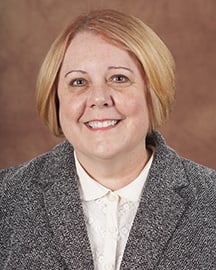 Instructional Designer
Instructional Designer
Center for Distributed Learning
University of Central FloridaShelly Wyatt is an instructional designer in the Center for Distributed Learning and works extensively with faculty in the College of Arts and Humanities and the College of Health and Public Affairs. Her research interests include social media and online learning, second language acquisition and immersion through technology, and mobile learning.
Session Recordings and Supporting Materials
Recording
Streamed Podcast Session
Presentation Materials
Presentation File
Projecting Your Online Persona Via Video [PDF; 1.3MB]
UCF Digital Learning Resources
Course Enhancements from Video@CDL—Review best practices for well-produced and well-integrated videos.
Video@CDL Consultation Request—Complete this form to request a potential video project.
Office of Instructional Resources—Find multimedia support for engineering services classroom support, Panopto Lecture Capture, Adobe Connect web conferencing, Lightboard One Button Studio, and video conferencing.
Video Conferencing—Tips and a form for faculty to request to use video conferencing resources from the Office of Instructional Resources.
UCF LyndaCampus—Offers UCF faculty, staff, and students online interactive video-based tutorials on such topics as software and applications to enhance business and design skills.
Scholarly Articles and Resources
Alexander, B., Adams Becker, S., Cummins, M., & Hall Giesinger, C. (2017, August). Digital literacy in higher education, part II: An NMC horizon project strategic brief, Part II, 3.4, 1-39. Retrieved from New Media Consortium website.
Buzzetto-More, N. (2015, March). Student attitudes toward the integration of YouTube in online, hybrid, and web-assisted courses: An examination of the impact of course modality on perception. MERLOT Journal of Online Learning and Teaching, 11(1), 55-73.
Costley, J., & Lange, C. (2017). Video lectures in e-learning: Effects of viewership and media diversity on learning, satisfaction, engagement, interest, and future behavioral intention. Interactive technology and smart education, 14(1), 14-30. doi:10.1108/ITSE-08-2016-0025
Draus, P., Curran, M., & Trempus, M. (2014). The influence of instructor-generated video content on student satisfaction with and engagement in asynchronous online classes. Journal of Online Learning and Teaching, 10(2), 240–254.
Educause. (2016. December). 7 things you should know about online video platforms.
Fish, K., Mun, J., & A’Jontue, R. (2016). Do visual aids really matter? A comparison of student evaluations before and after embedding visuals into video lectures. Journal of Educators Online, 13(1), 194-217.
Lee. M., Nikolic, S. Vial, P., Ritz, C., Li, W., & Goldfinch, T. (2016, November). Enhancing project-based learning through student and industry engagement in a video-augmented 3-D virtual trade fair. IEEE Transactions on Education, 59(4), 1-19. doi:10.1109/TE.2016.2546230
Pond, K. (2016). Student engagement in video case based undergraduate business teaching. International Journal of Higher Education, 5(1), 119-127.
Practical Strategies from the Body of Knowledge
Chapes, J. (2017, June). Online video in higher education: Uses and practices. In J. Johnston (Ed.), Proceedings of EdMedia: World Conference on Educational Media and Technology 2017 (pp. 1133-1138). Waynesville, NC: Association for the Advancement of Computing in Education (AACE).
Malaga, R. A., & Koppel, N. B. (2017). A comparison of video formats for online teaching. Contemporary Issues in Education Research, 10(1), 7-12.
Paolo, T. D., Wakefield, J. S., Mills, L. A., & Baker, L. (2017). Lights, camera, action: Facilitating the design and production of effective instructional videos. Tech Trends, 61(5), 452-460. doi:10.1007/s11528-017-0206-0
Thomson, A., Bridgstock, R., & Willems, C. (2014). Teachers flipping out: beyond the online lecture: Maximising the educational potential of video. Journal of Learning Design, 7(3), 67-78.
Underdown, K., & Martin, J. (2016). Engaging the online student: Instructor-created video content for the online classroom. Journal of Instructional Research, 5(8), 8-12.
West, R. E., Jay, J., Armstrong, M., & Borup, J. (2017). “Picturing them right in front of me”: Guidelines for implementing video communication in online and blended learning. Tech Trends, 61(5), 461-469. doi:10.1007/s11528-017-028-y
15 September 2017, 8:07 pm - Storytelling, Amplifying the Human Connection in Online Learning
Abstract
The online classroom environment can sometimes cause students to feel isolated, both socially and cognitively. Digital storytelling creates a framework that can bring the online classroom to life, energizing social-cognitive dynamisms, and promoting a more authentic sense of community in the virtual teaching and learning space.
During this seminar, presenters will describe how storytelling in online learning facilitates a welcoming space, provides a structured springboard for personal agency empowering students’ thinking and creative expression, and personalizes those expressions to bridge connections that catalyze deep meaningful associations. The plot will thicken when an online teaching faculty member shares anecdotes of digital storytelling, which showcases learners’ coursework as a conduit for authentic opportunities for connections.
Presenters
Susan Jardaneh, MFA
 Associate Lecturer of Creative Writing
Associate Lecturer of Creative Writing
College of Humanities
University of Central FloridaSusan Jardaneh is an Associate Lecturer in the English Department in the College of Humanities. Over the years, Susan has used various creative projects in her classes, especially the use of digital stories and e-Portfolios. Susan has also developed online courses for UCF’s Interdisciplinary Studies’ program that focused on research, experiential learning, and multimedia technologies. Susan served as a Faculty Fellow for the Center for Teaching and Learning (2017) where her focus was on the use of storytelling as a learning tool.
Ashley Salter M.A.
 Instructional Designer
Instructional Designer
Center for Distributed Learning
University of Central FloridaAshley Salter is an Instructional Designer with the Center for Distributed Learning. She facilitates faculty with the design, development, and delivery of online and mixed-mode courses. Her research interests include professional development for teaching online, application of emerging technologies, like digital storytelling, and the use of open educational resource (OER) materials.
Session Recordings and Supporting Materials
Recording
Streamed Podcast Session
http://media.blubrry.com/faculty_seminars_in_online/cdl.ucf.edu/staticfiles/faculty_seminars/seminar17.mp3Podcast (faculty-seminars-in-online-teaching): Play in new window | Download (22.8MB) | Embed
Subscribe: TuneIn | RSS | About Faculty Seminars
Presentation Materials
Presentation:
Published Articles:
- Alcalá, J. C., Austin, M., Granroth, M., & Hewitt, B. (2016). Online inclusive pedagogy: A call-and-response dialogue on digital storytelling. Education for Information, 32(1), 71-85.
- Baim, S. A. (2015). Digital storytelling: Conveying the essence of a face-to-face lecture in an online learning environment. Journal of Effective Teaching, 15(1), 47.
- Hirumi, A., Sivo, S., & Pounds, K. (2012). Storytelling to enhance teaching and learning: The systematic design, development, and testing of two online courses. International Journal on E-Learning, 11(2), 125-151.
- Lindgren, R., & McDaniel, R. (2012). Transforming online learning through narrative and student agency. Educational Technology & Society, 15(4), 344-355.
- Nam, C. W. (2017). The effects of digital storytelling on student achievement, social presence, and attitude in online collaborative learning environments. Interactive Learning Environments, 25(3), 412-427.
Storytelling Resources:
- Barrett, H. C. (2011, June 3). Digital storytelling. Site contains examples of the uses of digital storytelling and applicable hardware and software.
- Baxter, J. (2015, Spring). Global UCF introduction – Janet Baxter.
- Brunson, R. (2017, February 7). WFTV’s Karla Ray on enterprise reporting.
- Catapano, J. (2017). Storytelling in the classroom as a teaching strategy.
- Educause Learning Initiative. (2007). 7 things you should know about digital storytelling.
- González-Tennant, E., & Lambert, J. (2009). Digital storytelling tips [PDF document].
- Greller, J. (2011, August 1). 64 Sites for digital storytelling tools and information. A repository of technology tools for digital storytelling can be accessed through this site.
- Jakes, D. (2006, December 29). Digital storytelling collection. Find links to articles, examples, tutorials, and resources about the process of digital storytelling, and how to get the most out of this terrific learning experience for students here.
- Kelly, R. (2013). Tips for Humanizing Your Online Course.
- King, M. (2017, Spring). Ms. King’s art room.
- Long, B. (2012-2013). Digital story evaluation rubric [PDF document].
- Matthews-DeNatale, G. (2008). ELI 2008 Digital storytelling tips and resources.
- Montgomery County Public Schools. (2001). 5 E’s lesson planning packet [PDF Handout].
- Morra, S. (2017). A steps to great digital stories [Diagram].
- Ohler, J. (2012, October 28). Story making tools [Web log].
- Savoie, K. (2017, Spring). Lesson plan outline [Concept map].
- Schmidt, N. (2017, March 16). Humanizing online teaching and learning: The quest for authenticity [Web log].
- StoryCenter. (2017). StoryCenter. This website supports individuals and organizations who use storytelling media for their own reflection, educational purposes, and social change.
- UCF What’s Next. (2016). Digital storytelling offers a powerful tool for reflection.
- University of Houston. (2017). Educational uses of digital storytelling. This website provides information describing digital storytelling, example stories, tools, how to create a digital story, educational materials, and more.
- Wise, A. (2017, March 19). Tok plais Aria.
- Wegmann, S. (2009). Digital storytelling. Digital Storytelling Literacy Symposium.
Technology Resources:
- Adobe Spark is a free tool for digital storytelling and ePortfolios. The Faculty Center for Teaching and Learning (FCTL) offer occasional Adobe Spark trainings.
- Bubbl.us mind map is a free third-party application for graphically representing ideas and concepts.
- Creately is a free third-party application to make diagramming easy with thousands of templates and examples to create flowcharts, mind maps, Venn diagrams, infographics, Gantt charts and more.
- iMovie for iOS and macOS. Enjoy creating and editing videos.
- Pixton Comic Maker gives students a way to express themselves by creating graphical comics. Found in Webcourses@UCF in “Settings” under the “Apps” tab.
- Storify 2 by livefyre is a free application that provides the tools to create and choreograph social media elements into stories and narratives, allows for collaboration and provides engagement features.
- Toontastic for digital storytelling on your tablet, phone, or Chromebook. Draw, animate, and narrate using 3D cartoons.
- Vimeo is a video sharing site that allowing users to create their own videos and share with others.
- Windows Movie Maker is a free application for creating and editing videos for Apple and Windows users.
24 May 2017, 8:30 pm - 29 minutes 2 secondsExtending the Efficacy of the Learning Management System: Integrating Tools to Enhance Learning OnlineAbstract
Learning management systems (LMS) such as Blackboard and Canvas provide a foundation for instructors to design online learning experiences. In recent years, the functionality of most LMSs has expanded to offer more flexibility, primarily by allowing external tools to be integrated. Tools such as Twitter, YouTube, and Quizlet have the potential to increase learners’ access to content, foster interaction with others in the community, and assess learning in diverse ways. In this session, we will provide examples of how these tools can support sound pedagogical practices, and encourage attendees to explore integrations in their online courses. Specifically, an instructor shares experiences of utilizing several integration tools within Canvas online courses.
Presenters
Amanda Groff, Ph.D.
 Associate Lecturer of Anthropology
Associate Lecturer of Anthropology
College of Sciences
College of Education and Human Performance
University of Central FloridaAmanda T. Groff is an Associate Lecturer in the Anthropology Department in the College of Sciences at UCF. Over the years, Dr. Groff has integrated various tools and strategies to engage online learners in her undergraduate archaeology and cultural courses. Dr. Groff was awarded the Chuck. D. Dziuban Excellence in Online Teaching Award (2012), as well as a Scholarship of Teaching and Learning Award (2014) for her research on the integration of Twitter into online courses.
John Raible, M.A.
 Instructional Designer
Instructional Designer
Center for Distributed Learning
University of Central FloridaJohn Raible is an Instructional Designer with the Center for Distributed Learning and an Adjunct Professor in the College of Education and Human Performance. He facilitates faculty with the design, development, and delivery of online and mixed-mode courses. His research interests include integrating emerging technologies into the curriculum, open educational resources, and universal design for learning.
Session Recordings and Supporting Materials
Recording
Streamed Podcast Session
Presentation Materials
Presentation Resource
Center for Distributed Learning Resources
- TOPcast Episode 12: The LMS: Past, Present, and Future podcast featuring Kelvin Thompson and Tom Cavanagh discussing “the future of the LMS” with a listing of helpful resources on the topic.
- Enhancing Your Course on Webcourses@UCF Using Integrations: This webpage provides a list of the integrations most commonly used at UCF.
- Are you interested in using one of the Webcourses@UCF integrations in your UCF online course? Please fill out our Webcourses@UCF Custom Integrations form to begin a conversation with a Center for Distributed Learning team member.
- Would you like to request that an application be integrated into Webcourses@UCF Canvas LMS or suggest an integration that could be developed in-house? Please request an integration.
Scholarly Articles and Resources
- Brown, M. (2016). 6 implications of the Next-Generation Digital Learning Environments (NGDLE) framework.
- Brown, M., Dehoney, J., & Millichap, N. (2015). What’s next for the LMS?. Educause Review, 50(4), 40-51.
- Dahlstrom, E., Brooks, D. C., & Bichsel, J. (2014). The current ecosystem of learning management systems in higher education: Student, faculty, and IT perspectives. Educause Center for Analysis and Research.
- Demski, J. (2012). Rebuilding the LMS for the 21st Century. Campus Technology.
- Educause Learning Initiative. (2012). 7 things you should know about learning tools interoperability.
- Educause Learning Initiative. (2015). 7 things you should know about Next Generation Digital Learning Environment (NGDLE).
Canvas Guide
14 February 2017, 6:00 pm - 29 minutes 34 secondsPersonalizing the Learning Experience: Integrating Adaptive Elements in Online Courses
Abstract
Supporting the learning needs of students in online courses is commonly perceived as challenging for instructors, as the time and effort needed to master particular concepts may vary widely. Adaptive learning, an educational method which adapts presentation of material and assessment according to students’ unique learning needs, is gaining popularity in online courses. In this session, we will provide an overview of adaptive learning approaches, describe real-life examples, consider the instructor’s role in personalizing the experience, share available support and resources, and encourage a call to action for attendees. Specifically, an instructor’s experience of integrating personalized adaptive elements into online courses using the Realizeit platform will be presented.
Presenters
Debbie Hahs-Vaughn, PhD
 Professor
Professor
Department of Educational and Human Sciences
College of Education and Human Performance
University of Central FloridaDebbie L. Hahs-Vaughn is a Professor in the Methodology, Measurement, & Analysis Program in the College of Education and Human Performance, and Assistant Vice Provost for Faculty Excellence at UCF. She teaches graduate courses in quantitative statistics, primarily in online and blended formats. Dr. Hahs-Vaughn has recently integrated adaptive learning elements to allow online students to more directly control and engage in their learning and, from an instructional vantage, to provide a richer learning environment.
Corrinne Stull, MA
 Instructional Designer
Instructional Designer
Center for Distributed Learning
University of Central FloridaCorrinne Stull established her career with the Center for Distributed Learning (CDL) in 2012, serving on the Techrangers team to help develop and maintain courses taught online at UCF. She joined the Instructional Design team at CDL in 2014, focusing on courses using adaptive learning software. Corrinne specializes in personalized adaptive learning and also works with accessibility and the use of OER materials.
Session Recordings and Supporting Materials
Recording:
Streamed Podcast Session:
http://media.blubrry.com/faculty_seminars_in_online/p/cdl.ucf.edu/staticfiles/faculty_seminars/seminar15.mp3Podcast (faculty-seminars-in-online-teaching): Play in new window | Download | Embed
Subscribe: Apple Podcasts | Android | Google Play | Stitcher | TuneIn | RSS | About Faculty Seminars
Presentation Materials
Presentation Resources- PowerPoint Presentation [PDF; 1.7MB]
Scholarly Articles
- Alli, N., Rajan, R., Ratliff, G. (2016). How Personalized Learning Unlocks Student Success. EDUCAUSE Review, 51(2).
- Dziuban, C., Moskal, P., Cassisi, J., & Fawcett, A. (2016). Adaptive learning in psychology: Wayfinding in the digital age. Online Learning, 20(3), 74-96.
- Dziuban, C., Moskal, P., & Hartman, J. (2016). Adapting to learn, learning to adapt. ECAR Research Bulletin.
- Learning Gets Personal: Transforming the One-Size-Fits-all Approach to Higher Education. (2016).
- Murray, M., & Pérez, J. (2015). Informing and performing: A study comparing adaptive learning to traditional learning. Informing Science, 18, 111-125.
- Yang, T-C., Hwang, G-J., & Yang, S. J-H. (2013). Development of an adaptive learning system with multiple perspectives based on students’ learning styles and cognitive styles. Educational Technology & Society, 16(4), 185-200.
RealizeIT Resources
UCF-Specific Resources
- Webcourses@UCF Personalized Learning: Get a basic overview of personalized adaptive learning at UCF
- Interested in Personalized Adaptive Learning? – Fill out the Google Form to indicate your interest and ideas, and receive feedback from a specialist: https://goo.gl/forms/KJZ6FiuCjDrtbwQI3
5 October 2016, 10:40 am - 28 minutes 13 secondsPromoting Flexible Learning Opportunities in Online Courses: A Universal Design for Learning (UDL) Approach
Abstract
Addressing the needs of individual learners in online courses is commonly perceived as challenging for instructors. Design principles included in the Universal Design for Learning (UDL) framework have the potential to optimize learning in all spaces for all people, based on scientific insights in how people learn. In this session, we will share principles from the UDL framework that promote flexible learning opportunities within online courses. Specifically, an instructor’s experience of integrating UDL principles into online courses will be presented, and an online tool called Universal Design Online Inspection Tool (UDOIT) will be showcased.
Presenters
Mary E. Little, Ph.D.
 Professor and Program Coordinator
Professor and Program Coordinator
Department of Child, Family, and Community Sciences
College of Education and Human Performance
University of Central FloridaDr. Little is a Professor and Coordinator of Graduate Programs in Exceptional Student Education at UCF. She teaches undergraduate and graduate courses, both online and face-to-face, in subjects such as mathematics, assessment, instruction, action research, and program evaluation. In addition, Dr. Little implements the principles of Universal Design for Learning (UDL) to meet the diverse learning needs of students, and often presents in this area at state and national venues.
Nancy Swenson, M.A.
 Instructional Designer
Instructional Designer
Center for Distributed Learning
University of Central FloridaNancy Swenson is an Instructional Designer at UCF’s Center for Distributed Learning, assisting faculty in the design, development, and delivery of online courses. She has over 25 years of experience in the educational field and has taught online, mixed-mode, and face-to-face courses. Her online teaching and learning research interests include adult learning theory, accessibility of online education, and universal design for learning.
Session Recordings and Supporting Materials
Recording:
Streamed Podcast Session:
http://media.blubrry.com/faculty_seminars_in_online/p/cdl.ucf.edu/staticfiles/faculty_seminars/seminar14.mp3Podcast (faculty-seminars-in-online-teaching): Play in new window | Download | Embed
Subscribe: Apple Podcasts | Android | Google Play | Stitcher | TuneIn | RSS | About Faculty Seminars
Presentation Materials
Presentation ResourcesPowerPoint Presentation [PDF; 2MB]
Universal Design for Learning Guidelines: This interactive graphic designed by the Maryland State Department of Education and Howard County Public Schools showcases the three main principles of UDL and offers strategies on how to apply them.
Center for Applied Special Technology (CAST): This is the primary site for the Universal Design for Learning framework, and goes into detail about the UDL guidelines.
UDL On Campus Universal Design in Higher Education: This page from CAST demonstrates how the UDL Framework applies to the higher education learning environment and provides additional resources.
Ten Steps Toward Universal Design of Online Courses: This page provided by the University of Arkansas at Little Rock offers ten practical strategies to uphold the principles of universal design in online learning.
Learn the Basics with Equal Access: This page from the University of Washington provides a video and publication about how college teachers can design courses to be more accessible to all students.
UDL Toolkit: A state collection of UDL resources, including the UDL Curriculum Toolkit, guidelines, and policy foundations for UDL. Retrieved from University of Florida, Collaboration for Effective Educator, Development, Accountability, and Reform Center: Gainesville, FL.
Universal Design for Learning: Recommendations for Teacher Preparation and Professional Development: This document sponsored by the CEEDAR Center features an innovation configuration (IC) matrix that can guide teacher educators in the development of appropriate Universal Design for Learning (UDL) content.
What is UDOIT?: This page provides an overview of the Universal Design Online Content Inspection Tool (UDOIT), which is available in all UCF online course sections. It also provides a link in which to download the source code for those outside of UCF.
Articles and Artifacts
UDL: A Systematic Approach to Supporting Diverse Learners: This article written by Mark Hofer Ph.D. in the Faculty Focus discusses applying UDL principles to the classroom from a faculty member’s perspective.
UDL Provisions in the Higher Education Opportunity Act: This page from the UDL Center provides basic provisions of the law pertaining to universal design for learning.
Published Books and Articles about Universal Design of Online Learning: This page from the University of Washington provides a comprehensive list of scholarly articles about universal design in the higher education environment.
Universal Design for Learning (UDL): A Content Analysis of Peer-Reviewed Journal Papers from 2012 to 2015: This article by Ahmed Al-Azawei, Fabio Serenelli, and Karsten Lundvquist featured in the Journal of the Scholarship of Teaching and Learning analyzed papers about UDL implementation and found that positive results were yielded in the majority of studies.
A Blueprint for UDL: Considering the Design of Implementation. The first section of this blueprint offers an overview of UDL; next, implementation stages are introduced. The roles of stakeholders are examined, and conclusions are drawn with respect to implementation of UDL across four school districts.
9 June 2016, 11:46 am - 24 minutes 39 secondsThe Role of Synchronous Communication in Asynchronous Online CoursesSeminar Date: March 29, 2016
Seminar Time: 1:00pm
Location: Streamed Online from LIB 161BAbstract
The ability to communicate in real time (synchronous) through media such as text, audio, and video, can enhance the online learning experience by providing dynamic opportunities for social connection, collaborative problem solving, and collective reflection. However, issues related to synchronous communication include scheduling conflicts, technical support, and the perception that it is extra or busy work. In this session, we will share strategies to incorporate synchronous elements that enhance engagement and learning within online courses for instructors and students. Concrete examples of applying these synchronous strategies will be shared by an instructor.
Presenters
Bernardo Ramirez MD
 Associate Professor
Associate Professor
Department of Health Management and Informatics
College of Health and Public Affairs
University of Central FloridaBernardo Ramirez is an Associate Professor as well as the director of the Executive Health Services Administration and Global Health Initiatives programs for the Department of Health Management and Informatics at UCF. He teaches classes on the U.S. health system, international health systems, issues and trends in health professions, and quality improvement. He has incorporated synchronous elements in his online and blended courses for three years.
Tina Calandrino MEd
 Instructional Designer
Instructional Designer
Center for Distributed Learning
University of Central FloridaTina Calandrino is an Instructional Designer for the Center for Distributed Learning at UCF, assisting faculty in the design, development, and delivery of online courses. She has over twenty years of experience in the educational field and has taught online, blended, and face-to-face courses in the United States, Canada, and Italy. Her research focuses on developing tools and strategies for effective synchronous teaching in the online learning environment.
Session Recordings and Supporting Materials
Recording:
Streamed Podcast Session:
http://media.blubrry.com/faculty_seminars_in_online/p/cdl.ucf.edu/staticfiles/faculty_seminars/seminar13.mp3Podcast (faculty-seminars-in-online-teaching): Play in new window | Download | Embed
Subscribe: Apple Podcasts | Android | Google Play | Stitcher | TuneIn | RSS | About Faculty Seminars
Presentation Materials
Presentation Resources- PowerPoint Presentation [PDF; 5.7MB]
- Rubric for Online Synchronous Participation [PDF; 180KB]
Tools and Resources
- Guidelines for Synchronous Assignments: This resource provided by Webcourses@UCF describes best practices currently in use by some online faculty at UCF.
- Skype for Business: This page on UCF’s Teach site describes Skype for Business and shares best practices for holding successful online meetings using the tool. Specific examples provided.
- Adobe Connect: This is the official page for learning more about Adobe Connect meeting feature. Free trial is offered.
- Zoom: This is the official page for Zoom.
- Google Hangouts: Hangouts bring conversations to life with photos, emoji, and group video calls for free. Connect with friends across computers, Android, and Apple devices.
- Educreations: Teachers can record voice and screen to create video lessons in which students can interact instantly. Available on the web or as an iPad app.
- Nearpod: Create presentations in which students can interact via Web and/or mobile devices.
Articles and Artifacts
- Small Group Work and Whole Group Discussion Mediated through Webconferencing Software: This article, published in the International Journal for the Scholarship of Technology Enhanced Learning, reports on a case study that explored the benefits and challenges of facilitating group activities in a synchronous environment in an undergraduate course.
- Benefits of Synchronous and Asynchronous e-Learning: The purpose of this article, published by the eLearning Industry site, is to discuss the advantages of using both synchronous and asynchronous technologies in an online learning environment.
- Blending Online Asynchronous and Synchronous Learning. A qualitative study article published in The International Review of Research in Open and Distributed Learning answering the question: How can the designer/instructor optimize learning experiences for students who are studying about online learning environments in a blended online course relying on both synchronous and asynchronous technologies?
- Promoting Synchronous Interaction in an eLearning Environment: Cyber-Instructors Continually Seek Instructional Tools That Will Hold Students’ Attention, and Make Online Communications More Efficient and Effective: The Journal’s article that presents a case of combining both synchronous and asynchronous interaction in an online classroom.
Webcourses@UCF How-To’s
1 February 2016, 4:33 pm - 27 minutes 32 secondsCreating and Sustaining Effective Online Discussions: Strategies to Foster Critical Thinking and Student Voice
Seminar Date: November 4, 2015 at 1:00 pm
Abstract
Online discussions are extensively used in online and mixed-mode courses. However, a common concern is that students will minimally participate in order to fulfill the grading requirements, and not truly engage with the content, instructor, or peers. In this session, we will share strategies to create and sustain online discussions that foster critical thinking and student voice. These strategies guide an instructor to effectively design the discussion before it commences, as well as to facilitate the discussion as it progresses, and assess the discussion when it concludes. Specifically, an instructor’s experience of using innovative discussion prompts within Webcourses@UCF will be showcased.
Presenters
Beatriz Reyes-Foster Ph.D.
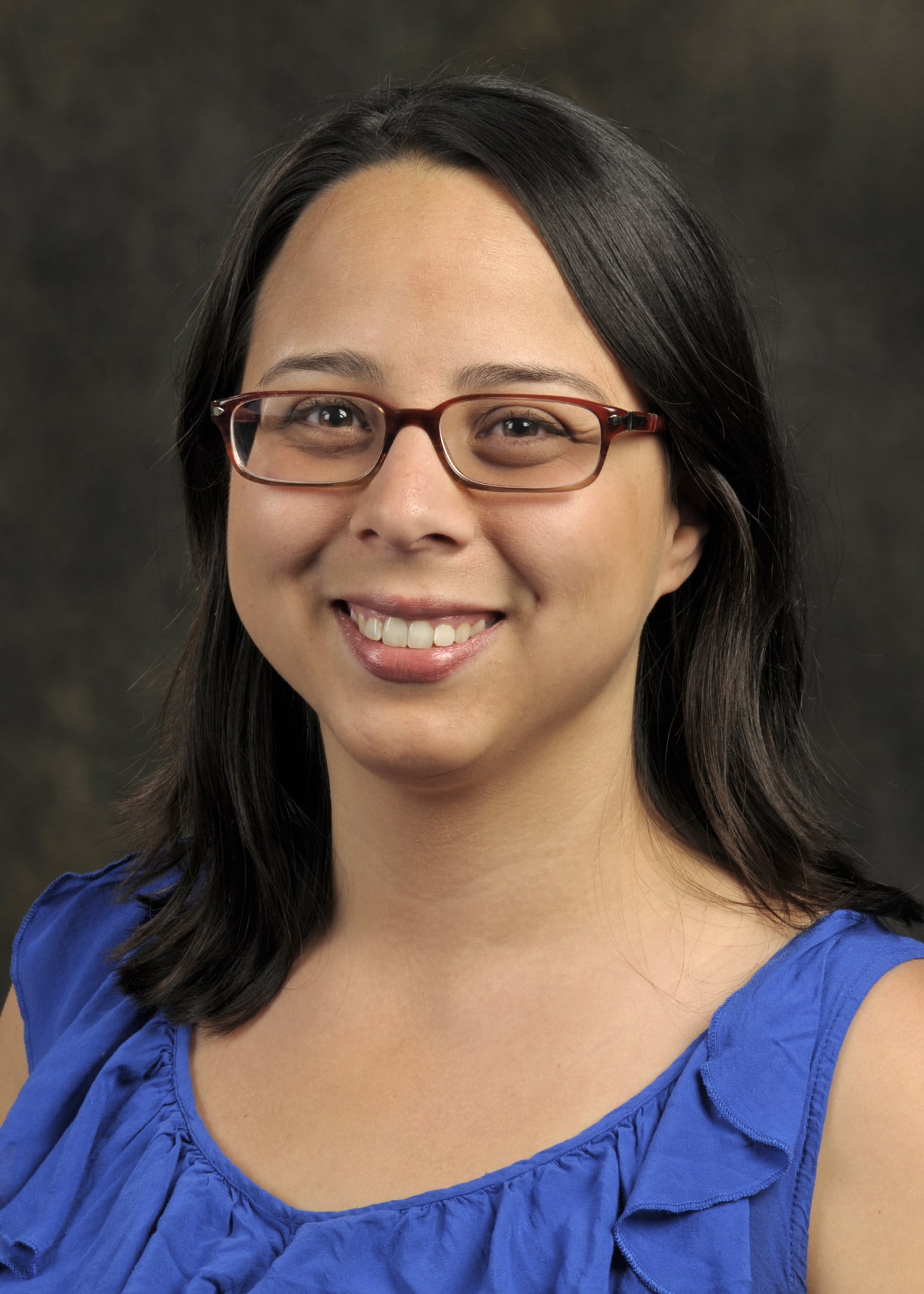 Assistant Professor of Anthropology
Assistant Professor of Anthropology
College of Sciences
University of Central FloridaDr. Beatriz M. Reyes-Foster is an Assistant Professor of Anthropology at UCF. Since 2012, she has taught online and mixed-mode classes and regularly incorporates online discussions. She has co-authored two articles that explore the relationship between the use of word clouds in online discussions and increased critical thinking and engagement. She is also the 2015 recipient of the Chuck D. Dziuban Award for Excellence in Online Teaching.
Rohan Jowallah Ed.D.
 Instructional Designer
Instructional Designer
Center for Distributed Learning
University of Central FloridaDr. Rohan Jowallah is an Instructional Designer for the UCF Center for Distributed Learning, assisting faculty in the design, development, and delivery of online courses. He has over twenty years of experience in the educational field and has taught online, mixed-mode, and face-to-face courses in the United States, the Caribbean, and England. His research focuses on developing and sustaining participation in the online learning environment.
Session Recordings and Supporting Materials
Recording:
Streamed Podcast Session:
http://media.blubrry.com/faculty_seminars_in_online/p/cdl.ucf.edu/staticfiles/faculty_seminars/seminar12.mp3Podcast (faculty-seminars-in-online-teaching): Play in new window | Download | Embed
Subscribe: Apple Podcasts | Android | Google Play | Stitcher | TuneIn | RSS | About Faculty Seminars
Presentation Materials
Seminar Presentation (3.5MB; PDF)Resources
- Wordle: Free, online word cloud generator used by Dr. Reyes-Foster
- TedEd Talks: Build a lesson around any TED-Ed Original, TED Talk, or You Tube video – as presented by Dr. Rohan Jowallah
- Pic Collage: Application which allows you to build a collage made up of student photos, used by Dr. Reyes-Foster in her photovoice assignment. Available for iOS and Android.
- Word Cloud Discussion: Dr. Beatriz Reyes-Foster’s discussion activity with word clouds is located in Canvas Commons, which is a learning object repository available to Canvas users. Log into Canvas and click on Commons. Search for “Group Discussion Using Word Clouds”. Click “Import into Course” if you’d like to use/edit the survey in one of your courses.
- Survey about Discussion Strategies: Dr. Beatriz Reyes-Foster’s survey about discussion effectiveness is located in Canvas Commons, which is a learning object repository available to Canvas users. Log into Webcourses@UCF and click on Commons. Search for “Survey about Discussion Strategies”. Click “Import into Course” if you’d like to use/edit the survey in one of your courses.
Articles
- Using Word Clouds in Online Discussions to Support Critical Thinking and Engagement: This article, published in the Online Learning Journal, shares the study that was presented by Dr. Reyes-Foster in the seminar.
- Strategies for Creating a Community of Inquiry through Online Asynchronous Discussions: This article in the Journal of Online Learning and Teaching, co-written by two instructional designers from UCF, shares practical strategies (such as peer facilitation and providing audio feedback) that support the emergence of a student community of inquiry.
- Beyond Critical Thinking by M.S. Roth (2010)
-
Using Socratic Questioning to Promote Critical Thinking by Yang, Newby, & Bill (2005)
TOPR Entries
(from UCF’s Teaching Online Pedagogical Repository)- Use Word Clouds to Enhance Critical Thinking: Describes Dr. Beatriz Reyes-Foster’s use of word clouds in online discussions.
- Using a Guided Approach to Support Critical Thinking in Online Discussions: Shares an example from Dr. Rohan Jowallah’s Introduction to Africana Studies course.
- Creating Discussion Prompts: Shares strategies to build various kinds of online discussion prompts.
- Setting Discussion Expectations: Shares points to consider related to expectations, such as how students should post an dreply, how many times students should check on the discussion, etc.
- Discussion Facilitation: Shares points to consider as instructors facilitate discussions, such as modeling, how often to facilitate, and facilitation styles.
- Strategies for Discussions in Large Classes: Shares an example from Dr. Patrick Murphy’s Science Fiction course, which has 175 students.
- Discussion Facilitator: Offers examples of facilitators beyond the instructor, such as guest expert, graduate-level students, peers, and teams.
- Use Pop Culture to Energize Online Discussions: Shares an example from Dr. Keri’s Watson’s History of Non-Western Art course.
- Implementing a Tuning Protocol to improve online discussion peer replies and assignment quality: Describes the process of implementing a discussion strategy called a protocol when implemented in a very large Business class at UCF.
- Use Rubrics to Evaluate Students’ Performance in Online Discussions: Delineates the process of determining scoring criteria for online discussions and provides multiple examples of discussion rubrics from different disciplines.
Seminars
- Engaging Online Students: Practical Interaction Strategies to Enhance Learning: This was a seminar held in 2011, in which presenters reviewed a variety of asynchronous and synchronous interaction strategies with a particular focus on designing and facilitating meaningful online discussions. You can watch the recorded session, listen as a podcast, or simply view the presentation slides.
Webcourses@UCF How-to’s
- What are Discussions for Instructors?
- How do I create a group discussions?
- How can I require students to post to a discussion before they see replies?
- What is a peer review discussion?
- How do I allow students to “like” replies in a discussion?
- How do I add a rubric to a graded discussion?
- How do I get to SpeedGrader from a graded discussion?
- How do I create a survey in my course?
- How do I view the survey results in my course?
29 September 2015, 9:11 am - 27 minutes 49 secondsLeveraging Mobile Devices to Support Authentic LearningSeminar Date: July 22, 2015
Abstract
Ownership of mobile technologies such as smartphones and tablets continues to rise amongst college students. Incorporating these devices in coursework can facilitate authentic learning, with students connecting what is taught in the course to real-world issues and applications. This can be especially powerful in online learning environments, allowing students to capture experiences in the field and share with others in the class. Although instructors may express an interest in incorporating a mobile element, they are often unsure how to design course activities that are not only engaging, but also effectively support authentic learning. In this session, issues of mobile design, assessment, and support will be discussed. Specifically, an instructor’s experience of integrating mobile devices to support authentic learning in a mixed-mode (blended) course will be showcased.
Presenters
Rick Brunson, M.A.
 Associate Instructor of Journalism
Associate Instructor of Journalism
Department of Journalism
Nicholson School of Communication
University of Central FloridaRick Brunson is an Associate Instructor of Journalism in the Nicholson School of Communication. He developed and teaches the Nicholson School’s Mobile Journalism course, which trains aspiring journalists how to use mobile devices to produce breaking news content in the field. A professional journalist with more than 30 years of experience as a reporter and editor, Brunson won a national teaching innovation award in 2011 from the Association for Education in Journalism and Mass Communication for mobile news best practices and now teaches them across the country at seminars sponsored by the AEJMC, Broadcast Education Association, the Associated Press Sports Editors, the Florida Scholastic Press Association, and many others.
Ryan Seilhamer, M.A.
 Instructional Designer
Instructional Designer
Center for Distributed Learning
University of Central FloridaRyan Seilhamer is an Instructional Designer in the Center for Distributed Learning, assisting instructors with the design, development, and delivery of online and mixed-mode courses. He has been the lead of the CDL Mobile Initiative for five years. Seilhamer’s research focuses on mobile learning best practices, design, and integration with online courses. Results have been published in journals such as the Journal of Educational Computing Research, Journal of Applied Research in Higher Education, and Educause Review.
Session Recordings and Supporting Materials
Recording:
Streamed Podcast Session:
http://media.blubrry.com/faculty_seminars_in_online/p/cdl.ucf.edu/staticfiles/faculty_seminars/seminar11.mp3Podcast (faculty-seminars-in-online-teaching): Play in new window | Download | Embed
Subscribe: Apple Podcasts | Android | Google Play | Stitcher | TuneIn | RSS | About Faculty Seminars
Presentation Materials
- Presentation PPT – [6.4 MB; PDF]
- Sample Rubric – [57 KB; PDF] – Used by Rick Brunson to assess mobile projects.
- Mobile Essentials: Online professional development course open to UCF instructors, which provides an overview of mobile learning, discusses mobile devices and apps, addresses common barriers to integration, and provides practical guides and examples that help individuals learn to integrate mobile technologies in their courses.
- CDL Mobile Blog: All presentations and publications by the Mobile Team, as well as opinion pieces, Canvas Mobile updates, and faculty spotlights.
- Mobile App checklist: Runs through features, accessibility, cost, support and other factors when selecting an app.
- Mobile Online Tools & Taxonomy Resource (M-OTTR): Guides instructors to search for apps that align with their learning objectives.
- Mobile Course Check: UCF instructional designers review courses and give UCF instructors a report that outlines the needed student support documentation and summarizes the course’s ease of usability and access on a mobile device.
22 July 2015, 1:00 pm - Strategies to Encourage Academic Integrity in Online ExamsOnline exams are popular in college courses, offering a time-efficient and flexible way of assessing student learning. Students often prefer them because of the convenience factor, while instructors like that they do not expend valuable face-to-face class time. However, the concern about students cheating on online exams is pervasive throughout higher education. Instructors often worry that it is difficult for students to remain academically honest under such conditions. In this session, resources and strategies to encourage academic honesty in the online exam environment such as considerations for test construction and exam settings will be shared. Specifically, we will showcase an instructor’s use of ProctorHub, UCF’s newest online proctoring tool, which is designed to mitigate these concerns.18 March 2015, 1:00 pm
- More Episodes? Get the App
Your feedback is valuable to us. Should you encounter any bugs, glitches, lack of functionality or other problems, please email us on [email protected] or join Moon.FM Telegram Group where you can talk directly to the dev team who are happy to answer any queries.
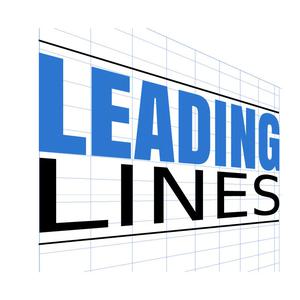 Leading Lines
Leading Lines
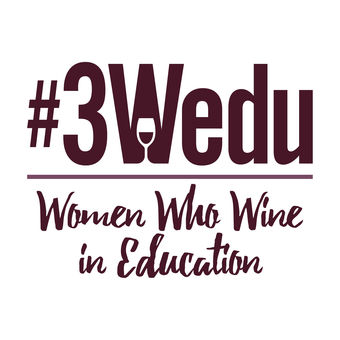 #3Wedu: In Vino Fabulum Podcast
#3Wedu: In Vino Fabulum Podcast
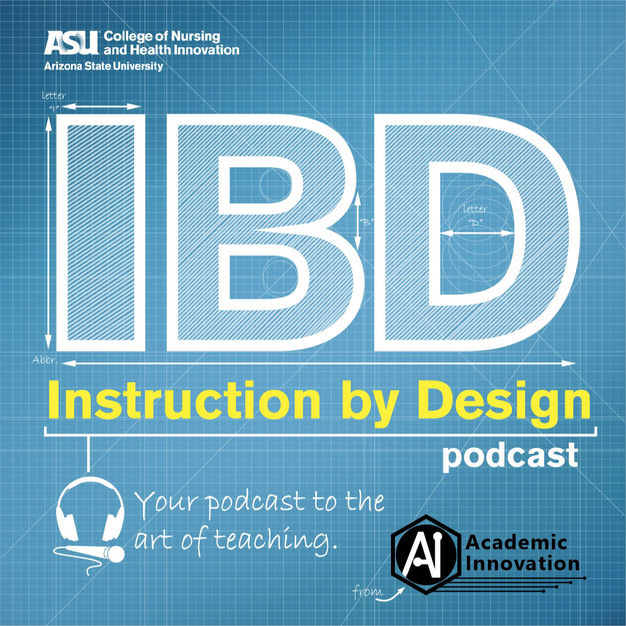 Instruction By Design
Instruction By Design
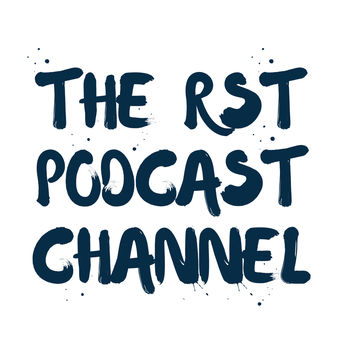 The Radical Self-Trust Podcast Channel | Tips & Strategies for Meaningful Productivity and Alignment in Work and Life
The Radical Self-Trust Podcast Channel | Tips & Strategies for Meaningful Productivity and Alignment in Work and Life
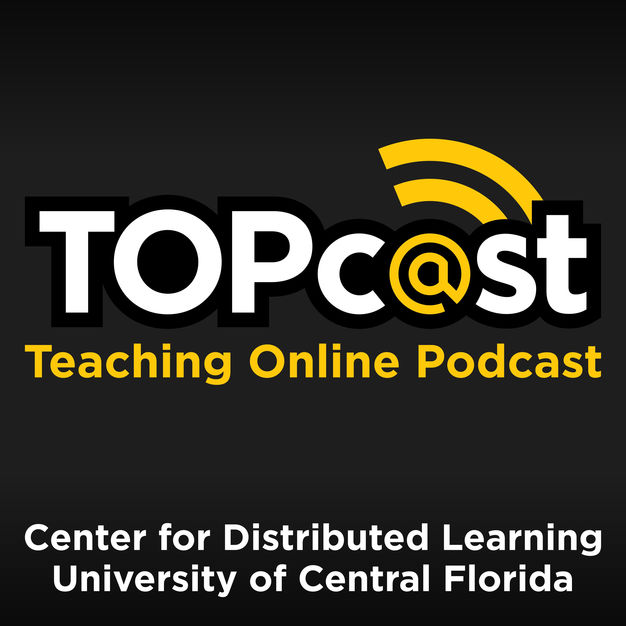 TOPcast: The Teaching Online Podcast
TOPcast: The Teaching Online Podcast